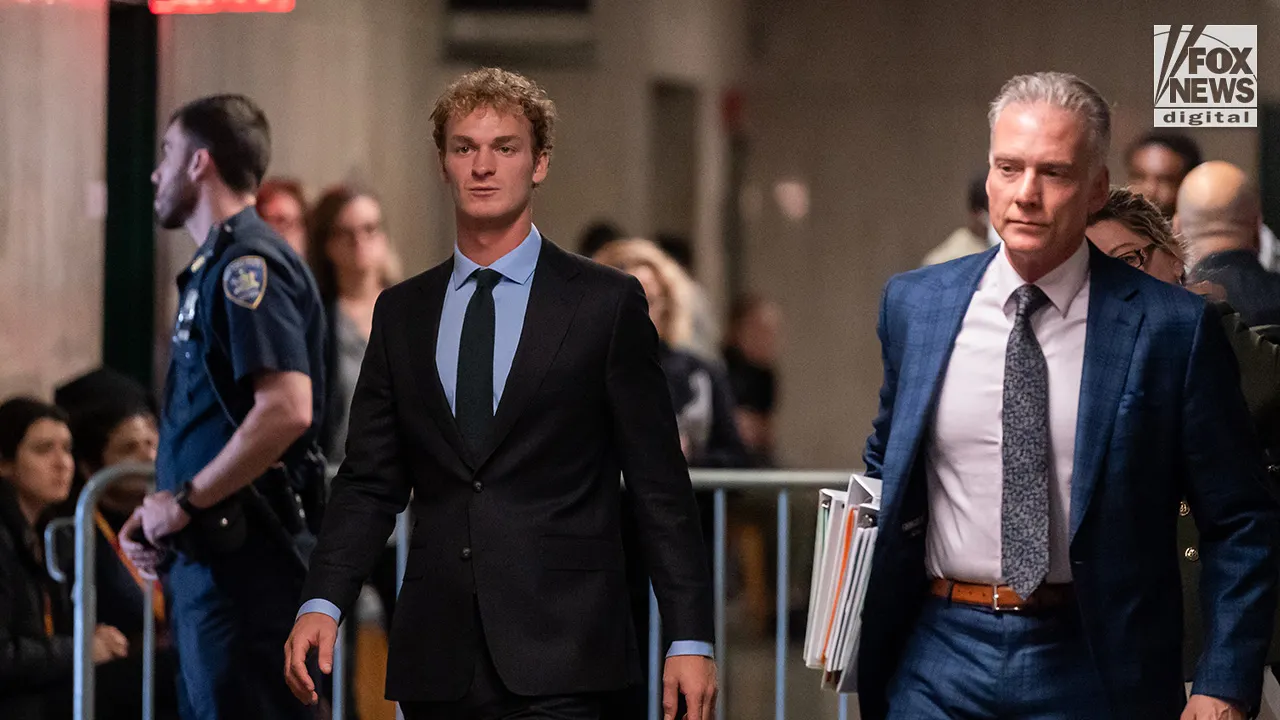President Biden’s latest executive actions on immigration are an attempt to shrink a loophole that has allowed many people to enter the country without legal permission. That loophole is the asylum system.
In today’s newsletter, I’ll explain why experts consider the asylum system to be broken and why a long-term solution will almost certainly require a new law from Congress.
Not as intended
The modern idea of asylum stems from World War II. It is meant to protect people fleeing political oppression — Jews during the Holocaust, dissidents from the Soviet empire, Iranians after the revolution and, in recent years, Muslim Uyghurs, Afghans, South Sudanese and Ukrainians.
But asylum has expanded far beyond its original intent. Today, many migrants claim asylum even though they are not at risk of being persecuted. They instead want to move to the U.S. — understandably enough — because it is a richer, politically freer and less violent place than much of the world.
After migrants arrive at the U.S. border and request asylum, the federal government allows many to remain in the country while their cases are considered. The process can take years, partly because the system is overwhelmed and doesn’t employ enough border agents and immigration judges to decide cases quickly.
The situation has become self-reinforcing, giving more migrants reason to come to the U.S. As my colleague Miriam Jordan has explained:
It is not just because they believe they will be able to make it across the 2,000 mile southern frontier. They are also certain that once they make it to the United States they will be able to stay.
Forever.
And by and large, they are not wrong …
Most asylum claims are ultimately rejected. But even when that happens, years down the road, applicants are highly unlikely to be deported. With millions of people unlawfully in the country, U.S. deportation officers prioritize arresting and expelling people who have committed serious crimes and pose a threat to public safety.
Two decades ago, the typical way that people tried to enter the U.S. without legal permission was to evade border agents. Today, the typical way is to surrender to agents and request asylum.
It’s true that migrants typically face difficult circumstances at home, but that alone doesn’t explain the recent surge. The 1970s and ’80s offer a telling comparison: Global poverty was far higher then than now, and much of Latin America was convulsed by political violence. Yet the number of people who tried to cross the U.S. border was far lower than in recent years.
The recognition of the asylum loophole (along with other factors, like social media and affordable airfares) is a major reason.
As a result, the U.S. now has an immigration system that permits many more entrants than Congress intended — and many more than Americans support.
Polls show that most Americans consider illegal immigration to be a serious problem and favor tougher border security. Mayors and governors, who are dealing with the costs and turmoil associated with the surge, are also unhappy. As Noah Smith, who’s generally pro-immigration, recently wrote on Substack, “Americans like immigrants, but they strongly dislike the idea of giving up popular democratic control over immigration.”
Biden made a similar point at the White House yesterday, while surrounded by officials from border communities. “We must face a simple truth,” he said. “To protect America as a land that welcomes immigrants, we must first secure the border and secure it now.”
Biden’s executive actions are an effort to address both a substantive problem and a political threat to his re-election. The new policy, which started at midnight, prevents most people from claiming asylum if they enter the country without legal permission. They will instead have to remain in Mexico or return to their home country. The policy will remain in place unless daily migration falls well below its current level.
Legal experts are divided on whether judges will uphold Biden’s order. On the one hand, federal law calls for a generous initial approach to asylum claims. On the other hand, the Supreme Court recently ruled that immigration law “exudes deference to the president.”
Congress, of course, has the power to resolve this uncertainty. It could pass a law making clear who deserves an asylum hearing. Congress also has the power to hire more agents and judges, to reduce the system’s yearslong backlog.
Until recently, Biden and many other Democrats were uninterested in passing such a law unless it also expanded legal immigration. Democrats, sensing their political vulnerability, changed their approach late last year and agreed to a bipartisan border-security bill — only to watch Republicans kill it at the urging of Donald Trump. Trump preferred letting the border crisis fester to hurt Biden. Yesterday’s executive order was Biden’s response.
Whatever happens in the courts, the executive order may reduce migration simply by sending a signal that Biden has become more serious about border security. But the order falls well short of a lasting fix to the asylum loophole. Any true fix will have to be part of the immigration overhaul that politicians have talked about for decades and still have not passed.
For more
THE LATEST NEWS
Primary Elections
-
Representative Andy Kim won the New Jersey Democratic primary for Bob Menendez’s seat in the U.S. Senate. Menendez, on trial on bribery charges, plans to run as an independent. Curtis Bashaw, a moderate hotel developer, won the Republican primary.
-
Menendez’s son, Representative Rob Menendez, won a tough primary race for his House seat in New Jersey.
Biden’s Time Interview
-
In an interview with Time magazine, Biden blamed Hamas for the failure to reach a cease-fire deal but said Israel had made mistakes. “A lot of innocent people have been killed.”
-
Biden responded aggressively when asked whether he was too old to be president. “I can do it better than anybody you know,” he said.
-
The president said China appeared to be meddling in the campaign to help Trump. “All the bad guys are rooting for Trump, man.”
More on Politics
-
At Hunter Biden’s trial, prosecutors played the audiobook of his memoir and showed the jury text messages as evidence that he was abusing drugs when he applied for a gun in 2018. “Nobody is allowed to lie, not even Hunter Biden,” one prosecutor said.
-
Merrick Garland, Biden’s attorney general, rebutted the false claim that the Justice Department was behind Trump’s criminal conviction in Manhattan. “That conspiracy theory is an attack on the judicial process itself,” he said.
-
Wisconsin charged three former Trump advisers in a 2020 fake electors scheme.
Indian Elections
Other Big Stories
Opinions
Rather than dismissing boys as privileged, progressives should sympathize with issues they face, like isolation, Ruth Whippman writes.
If the Supreme Court lets companies use bankruptcy law to limit payouts to those they have harmed, it will undermine the justice system’s ability to deter bad behavior, Melissa Jacoby writes.
Amanda Knox: She was convicted and then exonerated of murdering her housemate in Italy. Now she’s returned to court in Italy over slander charges.
Ask Well: Spray sunscreen is convenient. But does it work?
New Orleans: Read books that capture the city’s many cultural influences.
Lives Lived: Janis Paige made her mark at 22 in the all-star 1944 film “Hollywood Canteen” and became the toast of Broadway in the hit musical “The Pajama Game” before enjoying a long career on the stage, in films and on television. She died at 101.
SPORTS
Men’s soccer: Real Madrid’s signing of the French star Kylian Mbappe was years in the making. Read the inside story.
Women’s soccer: The U.S. team beat South Korea after Lily Yohannes, 16, scored in the 82nd minute.
N.B.A.: The Los Angeles Lakers are close to hiring JJ Redick, a former player and ESPN broadcaster, as their head coach.
In the past few years, Saudi Arabia’s royal family has spent lavishly to improve the country’s reputation overseas. That includes a nearly trillion-dollar investment in tourism. But what is it like to travel through a country that not long ago mostly prohibited tourism and enforced strict religious codes? Stephen Hiltner, a journalist for The Times’s Travel section, took a 5,200-mile road trip across the kingdom to witness its transformation. Read about his journey.
More on culture
-
A former protégée accused The-Dream, a producer who has made hits with Beyoncé and Rihanna, of rape and battery. He called the allegations “untrue and defamatory.”
-
The Times critic Tejal Rao visited Something About Her, a Los Angeles sandwich restaurant started by two stars from Bravo’s “Vanderpump Rules.”
-
Sean Combs, also known as Diddy, sold his stake in Revolt, a media company he founded. Several women have sued Combs in recent months, accusing him of sexual assault.
-
A documentary about the Brat Pack will premiere at the Tribeca Festival. Read about five defining teen movies of the 1980s.






